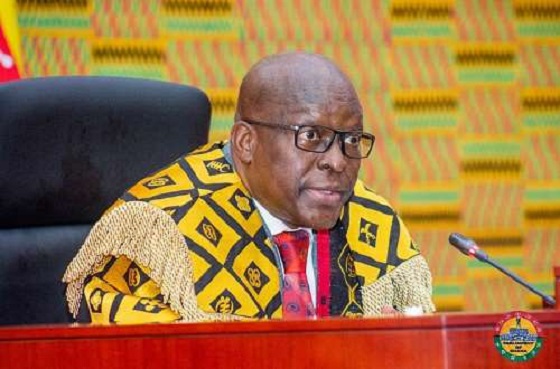Speaker Alban Bagbin
Parliament has passed the anti-LGBT bill formally known as the Human Sexual Rights and Family Values Bill 2021.
The bill, which cracks down on the activities of Lesbian, Gay, Bisexual, Transgender, Queer, Intersex, and Asexual (LGBTQIA), was proposed by eight MPs.
They include Samuel Nartey George (Ningo-Prampram), Della Adjoa Sowah (Kpando), Emmanuel Kwasi Bedzrah (Ho West), Alhassan Suhuyini (Tamale North), Rita Naa Odoley Sowah (Dadekotopon), Helen Ntoso (Krachi West), and Rockson-Nelson Dafeamekpor (South Dayi), all of the National Democratic Congress (NDC), and John Ntim Fordjour (Assin South) of the New Patriotic Party (NPP).
When Ghana was under British authority, the Offences Against the Person Act of 1861 made homosexuality a criminal offence. The Act was enforced in all British territories. Following independence, Section 104 of Ghana’s Criminal Offences Act of 1960 as amended prohibited “unnatural carnal knowledge.”
After some back and forth among MPs on the third reading on the floor, the bill cleared the last hurdle in Parliament yesterday.
The third reading of the Proper Human Sexual Rights and Family Values Bill was previously ‘arrested’ by the Majority Leader, Alexander Afenyo-Markin.
The Speaker, Alban S.K. Bagbin, was about to allow for the motion on the third reading of the bill to be moved and seconded, when Mr. Afenyo-Markin intervened.
He rose to move that “the bill passes through a Second Consideration in respect of Clause 4”.
The Clause 4 proposes a minimum custodial sentence of six months and a maximum of three years for people who find themselves in the activity of LGBTQ+, but he wants the House to proffer a community service over jail term.
Background
The bill passed its first reading in Parliament on August 2, 2021, and was referred to the Committee on Constitutional, Legal, and Parliamentary Affairs for consideration and report.
On November 12, 2021, public hearings on the bill began in Parliament, and on the first day of hearings, Henry Kwasi Prempeh of the Ghana Centre for Democratic Development spoke against it.
He argued that “merely because you see yourself as part of a momentary majority, does not entitle you to impose your will on even one individual in society.”
According to Kyeremeh Atuahene of the Ghana AIDS Commission, the law has the potential to criminalise anti-HIV/AIDS efforts in the country, as well as push back on donor funds.
On December 6, 2021, Moses Foh-Amoaning of the National Coalition for Proper Human Sexual Rights and Family Values argued in favour of the bill, claiming that LGBT+ people were “not well, and the law gives health authorities the power to restrain such people.”
On July 5, 2023, Parliament unanimously approved the bill’s second reading and agreed to a few amendments offered by the Constitutional, Legal, and Parliamentary Affairs Committee.
Provisions
The bill’s provisions include up to three (3) years of imprisonment for same-sex intercourse and 6 to 10 years of imprisonment for anyone who produces, procures, or distributes material deemed to promote LGBT+ activity.
It also includes a provision requiring citizens and institutions to promote and safeguard proper human sexual rights and Ghanaian family values, as well as a penalty of six months to one year in prison for a “public show of romantic relations” between persons of the same sex.
The bill also bans the service of trans healthcare and recommends a six-month to one-year jail term for a “public show of romantic relations” with someone who has undergone gender reassignment or who cross-dresses.
It again mandates the disbandment of all LGBT+ associations in Ghana, as well as 6 to 10 years in prison for anyone involved in such an association, a ban on sponsoring LGBT+ groups, and a clause that holds owners of digital platforms or physical premises where LGBT+ groups meet equally liable for promoting LGBT+ activities.
The bill prohibits same-sex marriage, marriage to people who have undergone gender reassignment, 6 to 10 years in prison for anyone who teaches children about LGBT+ activities or that there are more genders than the gender binary, and a ban on adoption and fostering for LGBT+ prospective parents.
The legislation additionally contains provisions that advocate six months to three years in prison for anyone who harasses someone accused of being LGBT+, as well as a clause that allows the government to extradite people convicted under it.
By Ernest Kofi Adu, Parliament House

